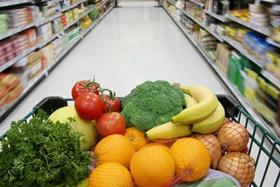
The number of fresh produce items quality checked by Muddy Boots increased by almost a fifth in 2017, according to the software provider.
Over 4.1 million items of fresh produce were checked by the company’s Greenlight Quality Control software in 2017, an increase of 19 per cent on the previous year.
The company puts this down to the growing demand from food businesses for quick and easy access to the data that tells them how their products are performing.
This data is then being used to help businesses make informed decisions that Muddy Boots says help reduce waste and cost while maintaining the right quality standards for customers.
Used by around 70 per cent of the UK’s fresh produce supply chain, Greenlight Quality Control saw its user base grow by 40 per cent in 2017 as more retailers started to invite their global suppliers into the system.
The software works by centralising product specifications online, enabling all users to access, update and share this information. This, in turn, facilitates real-time visibility of the performance of sites, suppliers and products.
To make the processing and interpreting of this data quicker and simpler, Muddy Boots has also introduced a new analytics tool called Insights.
The wide adoption of Greenlight QC comes with significant environmental and ethical benefits, according to the software provider. “By connecting their supply chain together in a single online platform, businesses can reduce waste by up to 50 per cent,” the company said.
Greenlight Quality Control product owner Mark Powell added: “When all members of your supply chain are accessing the same data via Greenlight QC, everyone is clear on the required specification from the get-go.
“The supplier (and even his suppliers) have confidence that their produce meets the appropriate quality standards set by the customer before it’s shipped, and the retailer has confidence that all produce about to arrive at depot is fit for purpose.
“This early warning system allows suppliers to identify any produce that the retailer will reject before it’s even shipped and helping to mitigate any of the risk or cost associated with an Emergency Product Withdrawal (EPW).
“The end result is a significant reduction in waste, increase in efficiency, and stronger supply chain relationships.”



